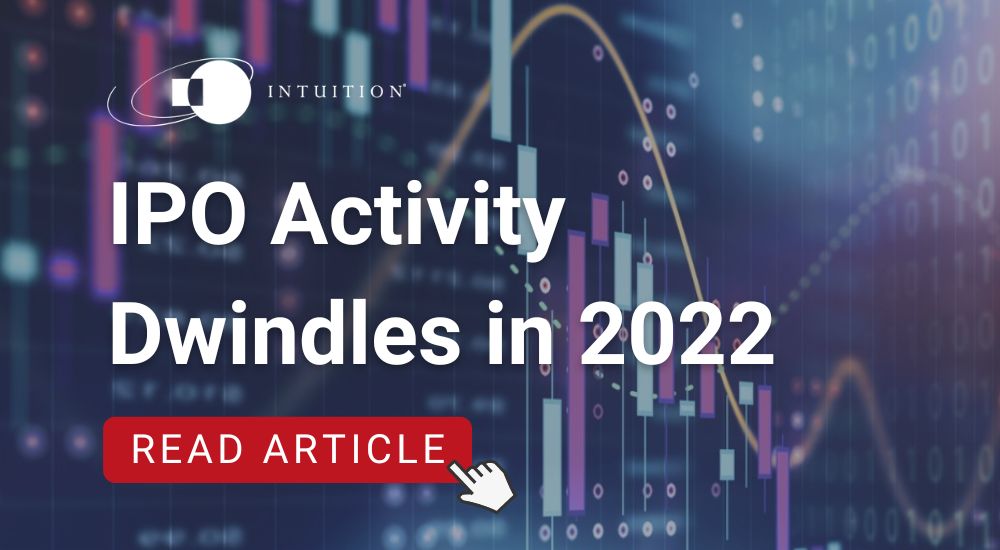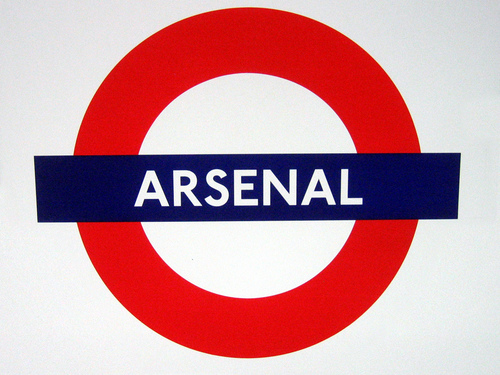IPO Activity Halts Amid Tariff-Driven Market Chaos: A Deep Dive

Table of Contents
II. The Impact of Tariffs on Investor Sentiment
Escalating tariffs are injecting significant uncertainty into the market, making long-term planning incredibly challenging for companies considering an IPO. This uncertainty directly impacts investor sentiment, a critical factor for a successful initial public offering.
Investor Uncertainty: Tariffs create a ripple effect, affecting not only the targeted industries but also consumer spending and overall business investment. The resulting market volatility makes it difficult to predict future revenue and profits, leading to heightened risk aversion among investors.
- Example: The automotive industry, heavily reliant on imported parts and materials, faces unpredictable cost increases due to tariffs, impacting both manufacturers and consumers. Increased production costs translate directly into higher vehicle prices, potentially reducing demand.
- Example: The technology sector, dependent on global supply chains for components and manufacturing, experiences significant disruptions due to tariff-related delays and increased costs. This uncertainty makes it difficult for companies to accurately forecast revenue and profitability.
Risk Assessment and Valuation Challenges: Accurately assessing the long-term value of a company is crucial for successful IPO pricing. However, tariffs introduce significant challenges in this process. The unpredictable nature of tariffs makes it difficult to forecast revenue and profits, leading to higher discount rates and lower valuations.
- Investors are demanding higher returns to compensate for the added risk associated with tariff uncertainty. This increases the hurdle rate for companies seeking funding.
- Traditional valuation models, such as discounted cash flow analysis, struggle to accurately incorporate the long-term effects of unpredictable tariff policies. The inherent uncertainty necessitates more conservative assumptions, leading to lower valuations.
III. Decreased IPO Deal Flow and Market Liquidity
The consequences of tariff-induced uncertainty are clearly reflected in a dramatic decrease in IPO activity. Fewer companies are choosing to go public, and market liquidity is being significantly affected.
Fewer Companies Going Public: The number of IPO filings and completed offerings has significantly declined. Companies are delaying their IPO plans, waiting for greater market stability and a clearer understanding of the long-term impact of tariffs. This "wait-and-see" approach is delaying much-needed capital for expansion and innovation.
- Smaller companies, particularly startups, are disproportionately affected, facing greater difficulty in securing funding through traditional venture capital or private equity routes. IPOs often represent their main exit strategy.
- Data from major stock exchanges such as the NYSE and NASDAQ clearly shows a marked reduction in IPO activity compared to previous years, confirming this trend.
Reduced Market Liquidity: The decrease in IPOs contributes to a reduction in overall market liquidity. This impacts investors, especially smaller investors who rely on a robust and liquid market for efficient trading.
- Reduced liquidity can lead to increased price volatility and lower market efficiency. Prices may not accurately reflect the underlying value of assets.
- It becomes more difficult for investors to buy and sell shares quickly and efficiently, limiting their ability to manage risk and potentially leading to forced selling at unfavorable prices.
IV. Case Studies: Specific Examples of Tariff-Affected IPOs
While specific company names are omitted for brevity and to avoid influencing investor opinions, several companies in the technology and manufacturing sectors have either delayed their IPOs or drastically reduced their valuations due to concerns over the long-term impact of tariffs. These instances highlight the direct link between tariff uncertainty and a hesitancy to enter the public market. Analyzing these case studies reveals a consistent pattern: heightened risk aversion and decreased investor confidence leading to postponed IPOs. The financial implications for these companies range from missed opportunities for expansion to difficulties in meeting operational expenses.
V. Looking Ahead: The Future of IPOs in a Tariff-Challenged Market
The future of IPO activity heavily depends on the resolution of ongoing trade disputes. Several scenarios are possible:
Potential Scenarios:
- De-escalation: A resolution of trade conflicts could lead to a significant resurgence in IPO activity, restoring investor confidence and unlocking capital markets for businesses.
- Further Escalation: Continued tariff wars could further depress IPO activity and deepen market uncertainty, potentially leading to a prolonged period of stagnation. This could have significant implications for economic growth.
Strategic Adjustments for Businesses: Companies need to adopt flexible strategies to navigate this uncertain climate. This includes focusing on diversification, domestic market expansion, and cost-optimization measures to mitigate tariff risks. Strategic planning and robust risk management become paramount.
Policy Implications: Government policies will play a crucial role in shaping the future IPO landscape. Implementing measures to reduce uncertainty and support businesses is essential for restoring investor confidence and promoting a healthy IPO market.
VI. Conclusion: Navigating the IPO Landscape Amidst Tariff Uncertainty
The impact of tariffs on IPO activity is undeniable. The current market environment, characterized by uncertainty and risk aversion, is significantly hindering companies' ability to go public. Staying informed about tariff developments and their economic consequences is crucial for investors and businesses alike. Continue to monitor key economic indicators, such as the VIX index and global trade data, and consider consulting financial professionals to navigate this complex landscape. The future of IPO activity hinges on resolving trade disputes and fostering a more stable and predictable investment climate. Understanding the impact of tariffs on IPOs is critical for informed decision-making in today's volatile market.

Featured Posts
-
 Republica Dominicana El Nudo Del Trafico Ilegal De Armas Hacia Haiti
May 14, 2025
Republica Dominicana El Nudo Del Trafico Ilegal De Armas Hacia Haiti
May 14, 2025 -
 Resultats Mitiges Pour Eramet Au T1 2024 Objectifs 2025 Confirmes
May 14, 2025
Resultats Mitiges Pour Eramet Au T1 2024 Objectifs 2025 Confirmes
May 14, 2025 -
 Bayerns Kosten Voor Informatie Over Nederlander Een Verrassende Onthulling
May 14, 2025
Bayerns Kosten Voor Informatie Over Nederlander Een Verrassende Onthulling
May 14, 2025 -
 Premier League Star A Target For Arsenal Ornsteins Report
May 14, 2025
Premier League Star A Target For Arsenal Ornsteins Report
May 14, 2025 -
 Tom Cruises Breathtaking 140 Mph Stunt In Mission Impossible
May 14, 2025
Tom Cruises Breathtaking 140 Mph Stunt In Mission Impossible
May 14, 2025
